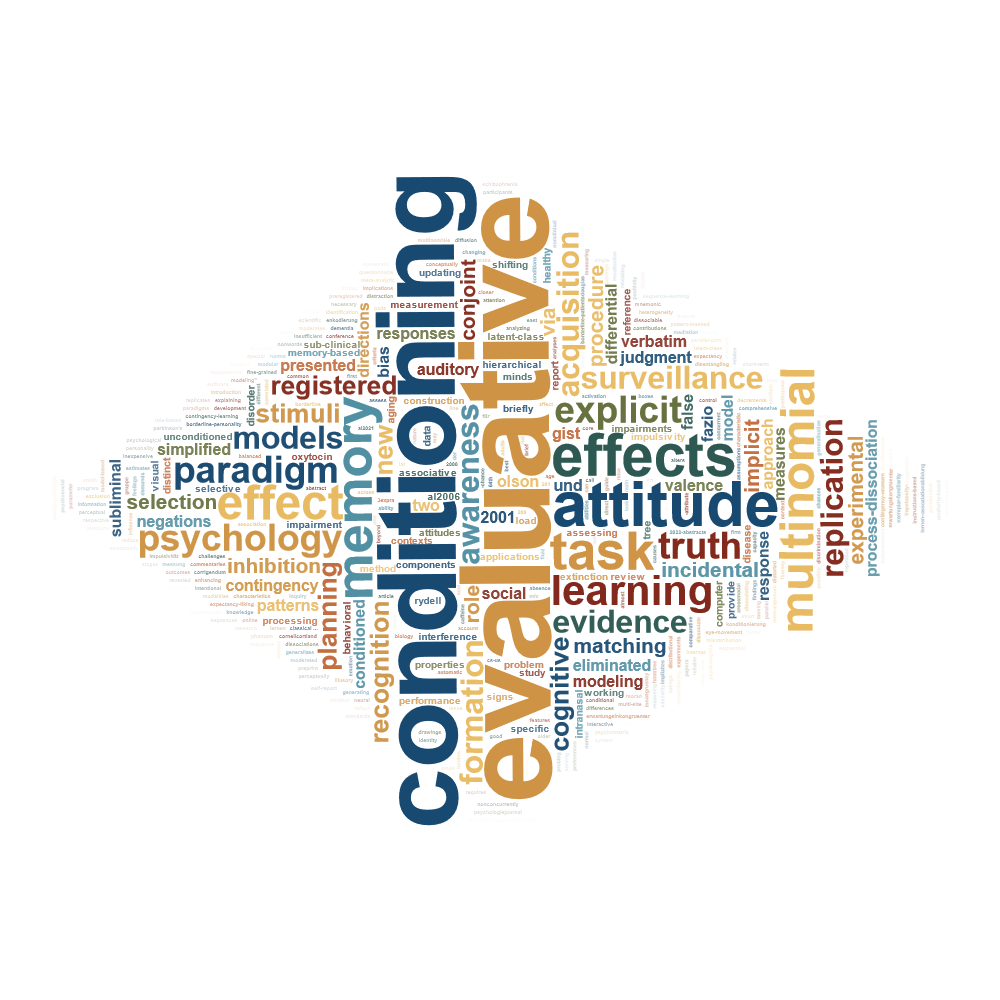Prof. Dr. Christoph Stahl
Office hours
Please contact Joachim Radt for an appointment.
Room
3.37, IBW building
Phone
+49 221 470 3428
Email
methexp-sekr@uni-koeln.de (or christoph.stahl@uni-koeln.de to contact me directly)
Prof. Dr. Christoph Stahl
Research interests & selected publications
For more, check the lab’s research interests and full list of publications.
Episodic Memory
Stahl, C. & Klauer, K. C. (2009). Measuring phantom recollection in the simplified Conjoint Recognition paradigm. Journal of Memory and Language, 60, 180-193.
Stahl, C. & Klauer, K. C. (2008). A simplified Conjoint Recognition paradigm for the measurement of gist and verbatim memory. Journal of Experimental Psychology: Learning, Memory, and Cognition, 34, 570-586.
Evaluative conditioning and indirect measurement of valence
Hütter, M., Sweldens, S., Stahl, C., Unkelbach, C., & Klauer, K. C. (2012). Dissociating Contingency Awareness and Conditioned Attitudes: Evidence of Contingency-Unaware Evaluative Conditioning. Journal of Experimental Psychology: General, 141, 539-557.
Stahl, C., Unkelbach, C., & Corneille, O. (2009). On the respective contributions of awareness of US valence and US identity in valence acquisition through evaluative conditioning. Journal of Personality and Social Psychology, 97, 404-420.
Stahl, C., Unkelbach, C. (2009). Evaluative learning with single versus multiple USs: The role of contingency awareness. Journal of Experimental Psychology: Animal Behavior Processes, 35, 286-291.
Stahl, C. & Degner, J. (2007). Assessing automatic activation of valence: A multinomial model of EAST performance. Experimental Psychology, 54, 99-112.
Multinomial processing-tree models
Stahl, C. & Klauer, K. C. (2007). HMMTree: A computer program for hierarchical multinomial processing tree models. Behavior Research Methods, 39, 267- 273.
Stahl, C. (2006). Multinomiale Verarbeitungsbaummodelle in der Sozialpsychologie [Multinomial processing tree models in social psychology]. Zeitschrift für Sozialpsychologie, 37, 161-171.
Selective Attention
Dittrich, K. & Stahl, C. (2012). Selective impairment of auditory selective attention under concurrent cognitive load. Journal of Experimental Psychology: Human Perception and Performance, 38, 618-627.
Dittrich, K. & Stahl, C. (2011). Non-concurrently presented auditory tones reduce distraction. Attention, Perception, & Psychophysics, 73, 714-719.
Illusory truth
Dechêne, A., Stahl, C., Hansen, J., & Wänke, M. (2010). The Truth About the Truth: A Meta-Analytic Review of the Truth Effect. Personality and Social Psychology Review, 14, 238-257.
Dechêne, A., Stahl, C., Hansen, J., & Wänke, M. (2009). Mix me a list: Repeated presentation is not sufficient for the Truth effect and the Mere exposure effect. Journal of Experimental Social Psychology, 45, 1117-1122.
Unkelbach, C. & Stahl, C. (2009). A multinomial modeling approach to dissociate different components of the truth effect. Consciousness & Cognition, 18, 22-38.
Reasoning
Kaller, C. P., Unterrainer, J. M., & Stahl, C. (in press). Assessing Planning Ability with the Tower of London Task: Psychometric Properties of a Structurally Balanced Problem Set. Psychological Assessment.
Stahl, C., Klauer, K. C., & Erdfelder, E. (2008). Matching bias is not eliminated by explicit negations. Thinking & Reasoning, 14, 281-303.
Klauer, K. C., Stahl, C., & Erdfelder, E. (2007). The abstract selection task: New data and an almost comprehensive model. Journal of Experimental Psychology: Learning, Memory, and Cognition, 33, 680-703.
